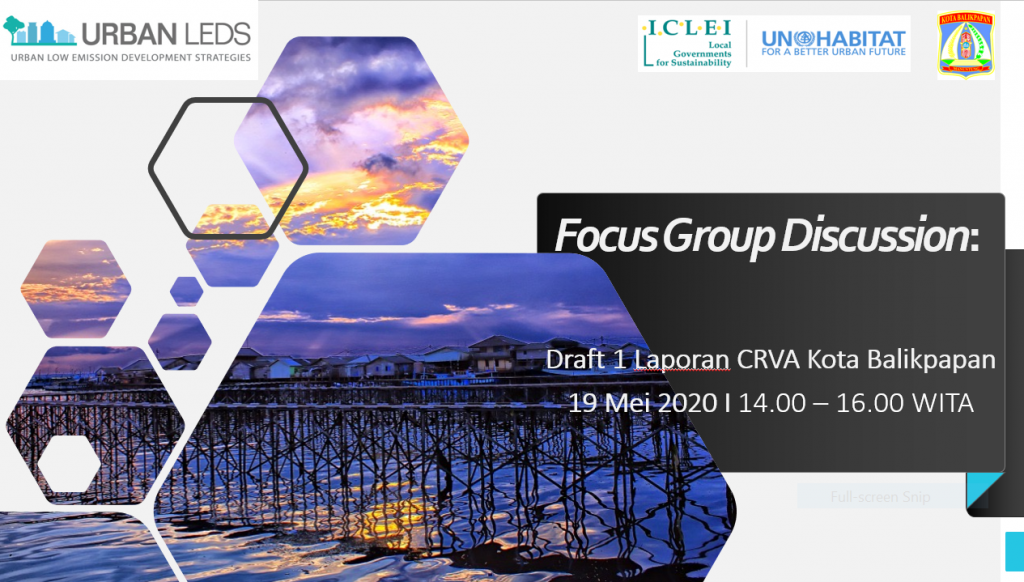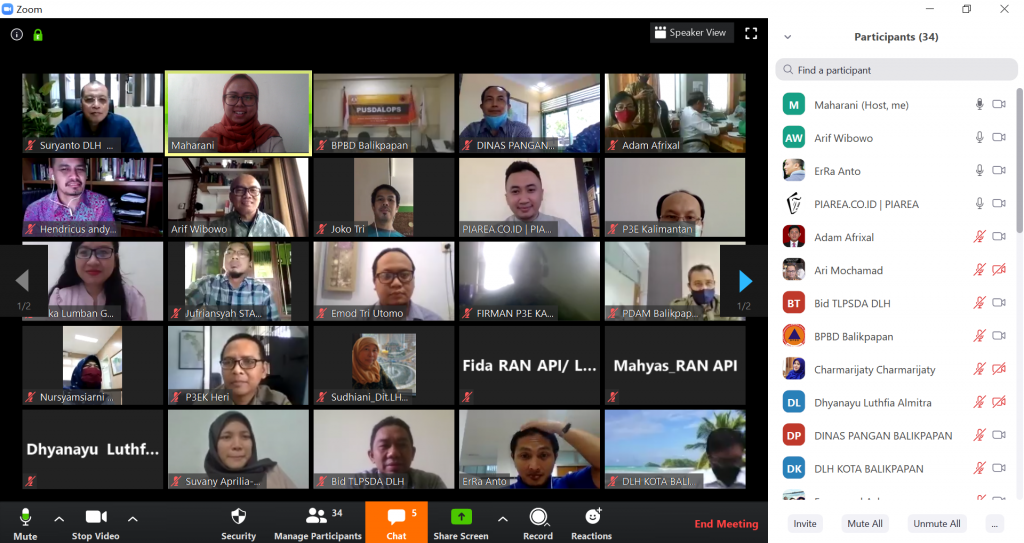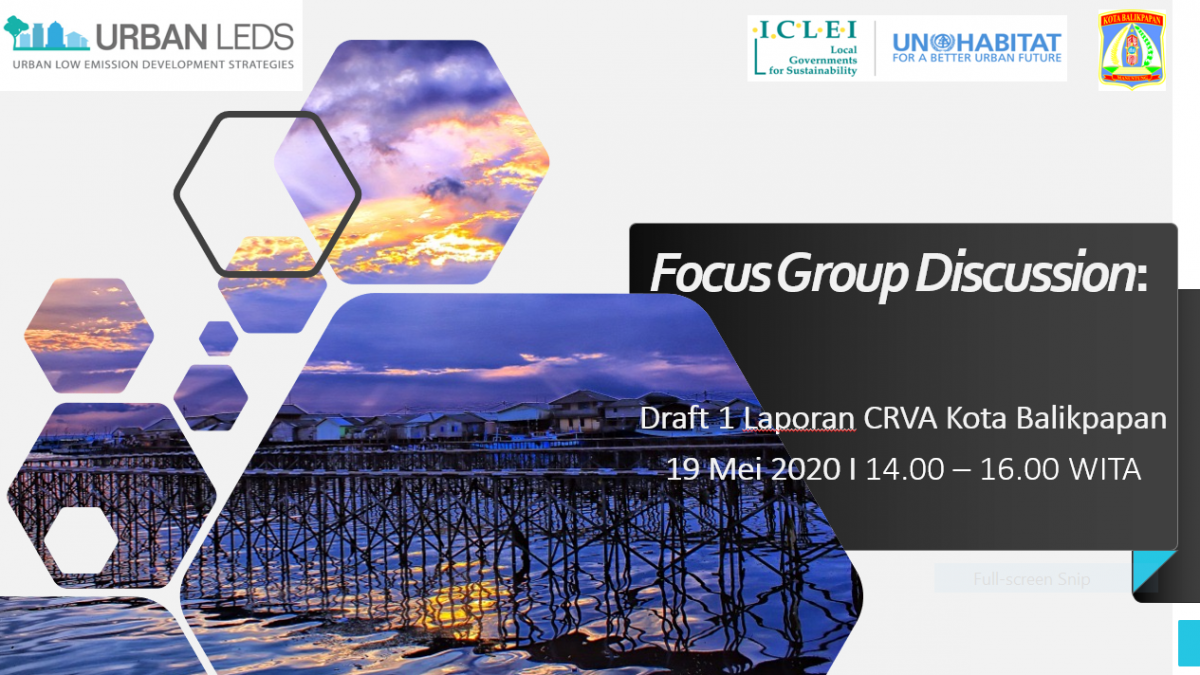
Thane commences pilot action to strengthen climate resilience
May 22, 2020
Rajshahi and Narayanganj complete assessments of climate risks, vulnerabilities
May 22, 2020Following the results of the Climate Risk and Vulnerability assessment, several sub-districts of Balikpapan City will experience the impact of rising sea levels. Sub-districts Kariangau and Teritip will face the risk of being submerged in water in the coming years.

Jakarta, Indonesia – ICLEI Southeast Asia (ICLEI SEAS) in partnership with the Government of Balikpapan City held virtual Climate Risk and Vulnerability Assessment (CRVA) focus group discussion series, respectively on 11 and 19 May 2020. The discussions aimed to strengthen the substance of technical, social, and economic aspects that are in line with the national guideline. The discussions were attended by the relevant local government organizations, Ministry of National Development Planning/BAPPENAS, Ministry of Finance, Ministry of Environment and Forestry, local NGOs and Indonesian Association of Urban and Regional Planners.
Balikpapan City Climate Projection in the Future
Balikpapan City has the potential to experience rainfall changes of -7% in the central and southern to 21% in the Eastern. Meanwhile the increase in air temperature will be experienced in all areas of the city with peaks up to ~1oC located in the Eastern and Southern. The impact of the climate projections is that the city will experience a decrease in water availability and water balance deficit conditions with the peak occurring in October.
Following the results of social and economic vulnerability analysis with the factors contributing to the city’s vulnerability, such as number of slums, water and waste sources, number of sufferers of climate-related diseases and basic facilities such as health and education shows that there are 7 villages with very high vulnerability. This is because the high sensitivity is accompanied by the lack of adaptive capacity. Responding to the results of the analysis, Mrs. Sudhiani Pratiwi, Head of the Subdivision of the Directorate for Environmental Quality and Climate Change, the Ministry of National Development Planning/BAPPENAS suggested that climate resilience strategies in vulnerable areas need to ensure clarity in the institutional authority. Institutional analysis needs to be conducted up to echelon 3 and 4 levels in each local government organization of the city.

Balikpapan City Readiness towards Climate-Proofing City
The city pays serious attention to the issues of climate change and sustainability. The city has set a target of 19.39% greenhouse gas emissions reduction by 2020 and continually does adaptation efforts. Next step, the city needs to do more elaboration on how the climate resilience strategies must be carried out into a unified cycle, namely planning, programming/budgeting, actions and stakeholder engagement, financing, monitoring and evaluation as well. Mr. Hendricus Andy Simarmata, President of Indonesian Association of Urban and Regional Planners recommended, “The city needs to develop a digital strategy and platform to involve the non-state actors in jointly implementing adaptation and mitigation actions. The climate-proofing city criteria need to be developed to encourage investor interest so as to trigger city quality improvement”. Ministry Environment and Forestry together with BAPPENAS should assist in preparing the grading system of criteria, he added.
Balikpapan City supported by ICLEI and UN-Habitat under the Urban-LEDS II project will carry out urban low emission development strategies review and how the city will integrate their climate plan into the city development planning period for 2021-2025.
More stories

